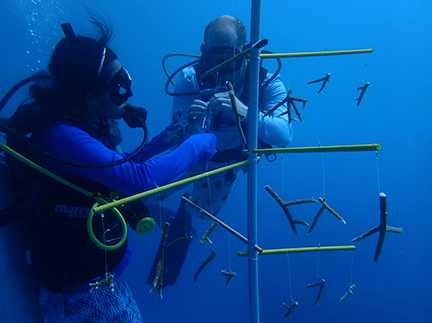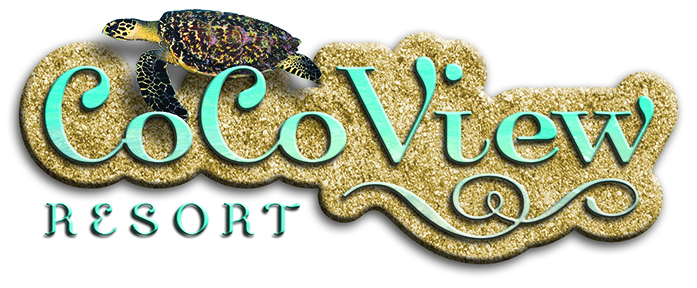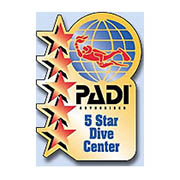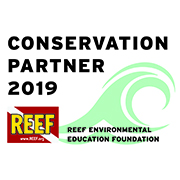Citizen Science
Volunteer for a real research project!
CCV encourages our guests to use their curiosity, skills and talents to engage in Citizen Science projects. These projects are sponsored by a wide variety of organizations so non-scientists can meaningfully contribute to scientific research.
Here are a few opportunities we think you may enjoy:
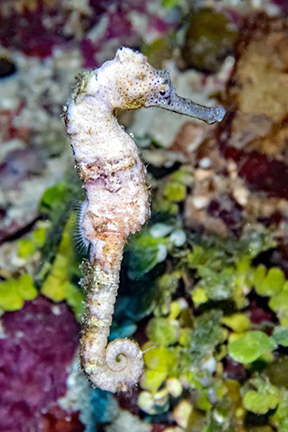
Seahorses!
Anyone can join iSeahorse. Whether you’re a diver, a fisher, a scientist, a seahorse enthusiast, or just on a beach holiday, you can upload your photos and observations to iSeahorse. You can help identify seahorse species. You can advocate for their protection in your ocean neighborhood. Scientists from Project Seahorse and seahorse experts around the world will use your vital information to better understand seahorse behavior, species ranges, and the threats seahorses face. They use this knowledge to improve seahorse conservation across the globe. Report your seahorse sightings via the app iSeahorse. www.iseahorse.org/Home/About
Sharks, Urchins, Turtles & more!
Earthdive and its partners the United Nations Environment Program– World Conservation Monitoring Center, along with marine scientists all over the world, have discovered that key indicator species in particular marine eco-regions can tell us a lot about the changing state of the world’s oceans. And, by seeing and recording these indicators during your scuba dive or a snorkeling trip, you can contribute to a Global Snapshot of our ocean’s health. Please register and log your sightings: earthdive.com/global-dive-log/
Diver Health
PDE is a prospective observational study of the demographics, medical history, depth-time exposure and medical outcome of a sample of the recreational diving population. PDE seeks to estimate the incidence of decompression sickness (DCS) in population subgroups and to investigate the relationship of DCS probability to depth-time profile and dive and diver characteristics. Participate in this study by sharing your diver profiles: www.diversalertnetwork.org/research/studies/project_dive_exploration
Animals & Plants – iNaturalist
Every observation can contribute to biodiversity science, from the rarest butterfly to the most common backyard weed. iNaturalist shares your encounters with scientific data repositories like the Global Biodiversity Information Facility to help scientists find and use your data. All you have to do is observe and report. Download the app at www.inaturalist.org/
Sea Grass
Since 1980, we’ve lost over 35% of our sea grass meadows worldwide. That equates to about 1.5% per year, or 2 football fields each hour. This rate of loss is equal to that of coral reefs and rainforests, yet sea grass receives no attention and we’d like to change that! Project Seagrass is committed 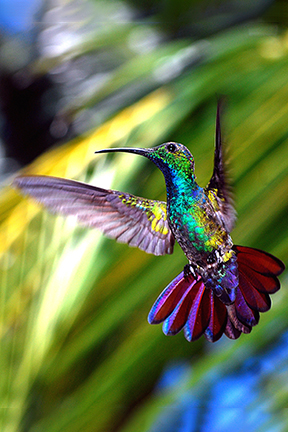 to the conservation of sea grass ecosystems and ensuring that the benefits they provide communities are sustained now and in the future. Seagrass Spotter is a conservation and education tool for tracking sea grass meadows around the globe. Help us conserve our coastline by uploading your own Seagrass sightings. seagrassspotter.org/
to the conservation of sea grass ecosystems and ensuring that the benefits they provide communities are sustained now and in the future. Seagrass Spotter is a conservation and education tool for tracking sea grass meadows around the globe. Help us conserve our coastline by uploading your own Seagrass sightings. seagrassspotter.org/
www.projectseagrass.org/about
Fish, Fish & Fish!
REEF conserves marine environments worldwide. Their mission is to protect biodiversity and ocean life by actively engaging and inspiring the public through citizen science, education, and partnerships with the scientific community. REEF’s mission, to educate and enlist divers in the conservation of marine habitats, is accomplished primarily through the Volunteer Fish Survey Project. Once you start conducting fish surveys, your diving experience will change. Suddenly you will start to notice things on your dives that have always been there, but the difference is that now you will know them. You will realize when a species you encounter is a great find, and who are the usual suspects. www.reef.org/vfsp
Birds
eBird is a joint project of the Cornell Lab of Ornithology and National Audubon Society. eBird’s global reach allows birders to keep track of their personal lists and collects vast amounts of data that can be used for science and conservation. By reporting your sightings eBird generates graphs, maps, and detailed analysis tools to help scientists better understand patterns of bird occurrence and the environmental and human factors that influence them. https://ebird.org. Included on this website is a great reference guide for the tropics: neotropical.birds.cornell.edu/
Sea Turtles
Seaturtle.org was founded out of a desire to support research and conservation efforts in the worldwide sea turtle community. Via iSTOR you can share your sea turtle sightings, and make them universally accessible and useful. www.seaturtle.org/istor/
Coral Restoration
CCV is happy to announce that our first coral restoration tree is in place near the stern of the Prince Albert and fully hung with over 30 pieces of Staghorn. Aubrey Alexander, from Dockside Dive Center, is spearheading the project. We hope to place more trees in the near future and look forward to CCV guests learning how to care for, harvest and transplant the crop!
